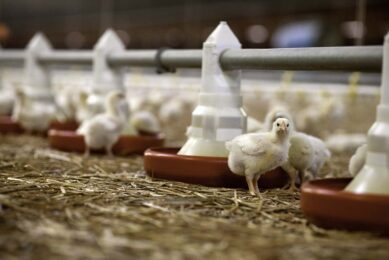Americans eat meat more than four times per week
According to a national survey carried out by Whole Foods Market, Americans eat meat an average of 4.2 times a week – that’s 218 times a year. Flavour, safety and humane treatment of animals are the top drivers for choosing high- quality meat and poultry.
With the barbeque season coming up 74% of the respondents chose chicken as a top pick for the grill, steak came second with 66% and the classic hamburger ended third 60%.
Survey results show that more and more Americans choose natural meat, 65 percent want a guarantee that all meat and poultry products are free from added growth hormones and antibiotics, and that the animals were humanely raised. And 61% of those surveyed felt it important that meat and poultry products’ compliance to these standards should be labelled.
Having set standards for meat products is for 51% a key factor in deciding where to shop for meat. However, when asked if they’d ever purchased products meeting such standards, 51% wasn’t sure.
The results of the survey show that Americans are lacking information about the way their meat and poultry is raised and that having more information is nearly as important as the flavour of the meat they purchase, concludes one of the researchers.
While respondents indicated a strong desire for certification of natural and organic standards, another significant survey finding indicates taste tests may be more of a motivator for shoppers to try natural meat than concerns for safety or animal welfare. When asked what would make them invest more in meat purchases, 77% said a guarantee the meat will consistently be the best and most flavourful every time; 59% said a guarantee it is coming from a trusted source and raised naturally without growth hormones or antibiotics; and 43% chose a guarantee it was raised humanely in optimal living conditions for the species.
With extremely stringent animal welfare standards and a clear, specific definition of “natural meat” in the supermarket industry, Whole Foods Market only sells meat and poultry adhering to its strict standards: no antibiotics, ever; no added growth hormones; humane animal husbandry, handling during transport, and slaughter; no animal byproducts in feed, including feather-meal or rendered fat; and no more than one-third of an animal’s life can be spent on a feedlot.













